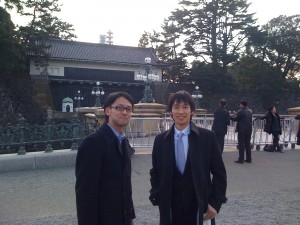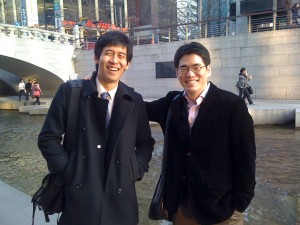The past few days have been extraordinarily busy. On Friday (9/7) we dedicated the new Usdan University Center, and there were many alumni, former trustees, and other friends of Wesleyan in town to help us celebrate. We were able to recognize a variety of contributors who made the planning and construction possible over the last ten years (!), and for me it was an opportunity to connect to many people who care about our school and who help move things forward. Standing on the third-floor terrace of the Usdan Center (or “the Suze,” as I’m told students call it) and looking across Andrus Field and Foss Hill, I am very grateful for the work of Doug Bennet and the trustees who envisioned this building at this location years ago.
Now, I know from reading the parents’ listserv and by talking to students, that our operation of the building has had some bumps in the last couple of weeks. As was true with MoCon, lines at the beginning of the year can be long, and we are still fixing issues in the building and in our getting food to students in a timely way. I can see progress, and we will continue to try to improve service to students, faculty, and staff who use the facility. Indeed, we expect “the Suze” to become a friendly hub for eating, conversation, and student committee meetings. Someone wrote in, concerned about it being “bland” and ordinary. This is a very traditional concern at Wesleyan, and often it is an expression of a desire to see things stay the way they used to be (for whomever is waxing nostalgic). I don’t share this concern myself, as I see students making the place their own, inventing their own education even as they learn from others.
The Wesleyan Board of Trustees begins the academic year with a retreat, which means here a day and a half of meetings focused on strategic issues facing the university. This was an occasion for me to talk with the Board (which includes representatives from the faculty and students) about my first impressions of coming back to Wesleyan, and to lay out some of the planning and research work we are taking on. There were three major areas of focus: endowment growth to make possible more robust financial aid and exciting innovations in the curriculum we offer our students; facilities enhancement, especially in the life sciences; communication effectiveness to clarify what Wesleyan stands for in the world of progressive liberal arts education. We discussed many other topics, but we kept returning to these key themes. I am sure to be writing about them again and again in the months to come as we consult with students, alumni, faculty, and staff about these priorities.
On a very different note, yesterday I had the great pleasure of giving a lunchtime talk for the College of Social Studies. It was wonderful to discuss my academic work in intellectual history, philosophy of history, and political theory – rather than the administrative side of my life. I focused on my work on contemporary French philosophy, psychoanalysis, and American pragmatism. At the beginning of the summer, I published a piece in Bookforum about the work in aesthetics of Jean-Luc Nancy, and I am now trying to finish a piece about my teacher, the great American pragmatist, Richard Rorty. Recently I sent off reviews of Mark Edmundson’s new book on Freud’s final year and of John Brenkman’s on political theory since 9/11. Today, of course, is the anniversary of that awful day. My remarks were about how my recent short writing is connected to my long-term intellectual interests.
The students at CSS are as tough minded and engaged as I remember them. In this program they learn to connect the kind of philosophical issues I was talking about with contemporary social, economic, and policy issues. They seemed engaged with one another and with the issues I brought up. It was only an hour, but it was a great sign to me of the energy and curiosity that have been the hallmarks of this program. We were fortunate last week to announce in The Wall Street Journal the Zilkha Chair in CSS, which is a wonderful way of enhancing the quality of this interdisciplinary program.
Here is the link to my Bookforum review of Nancy. I’ll post the links to the other reviews when they are published.
Thanks again to those people who have commented on what I’ve posted thus far. As I said initially, I won’t be able to respond to individual messages, but I do connect those posts that offer suggestions and criticism to the appropriate offices. I will try to find some time to introduce some more visual interest to the blog, but it may take a little while as I learn my way around the university.
My introduction to Wesleyan continues. THANKS FOR ALL THE HELP!
[tags] Usdan University Center, Doug Bennet, Board of Trustees, College of Social Studies, Jean-Luc Nancy, Richard Rorty, Mark Edmundson, John Brenkman, Zilkha Chair [/tags]




